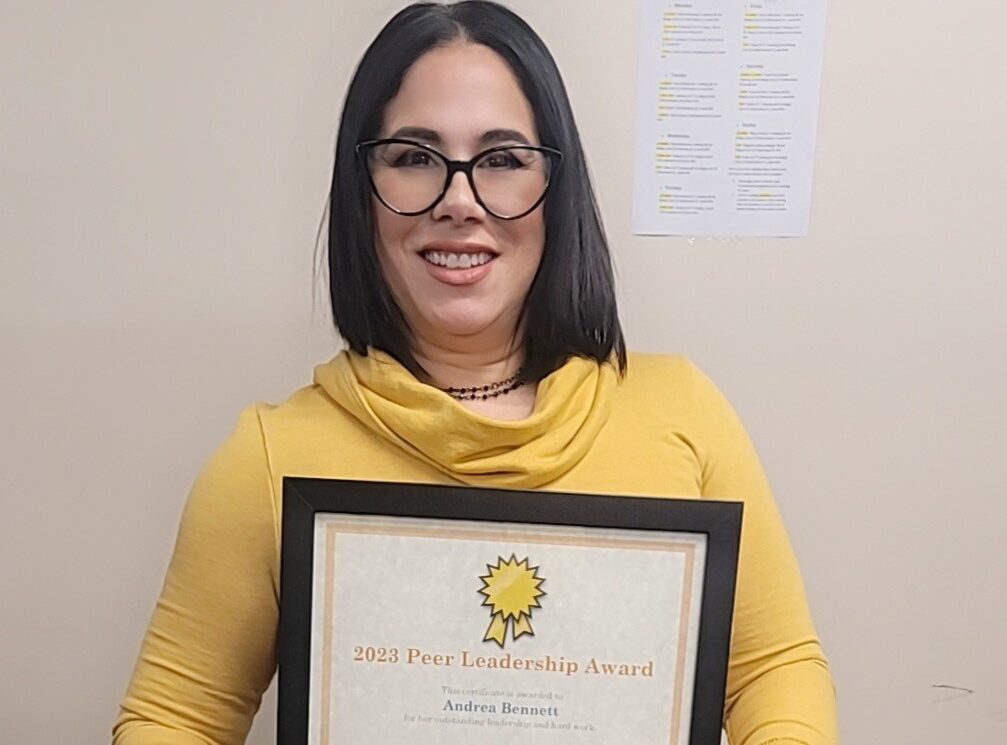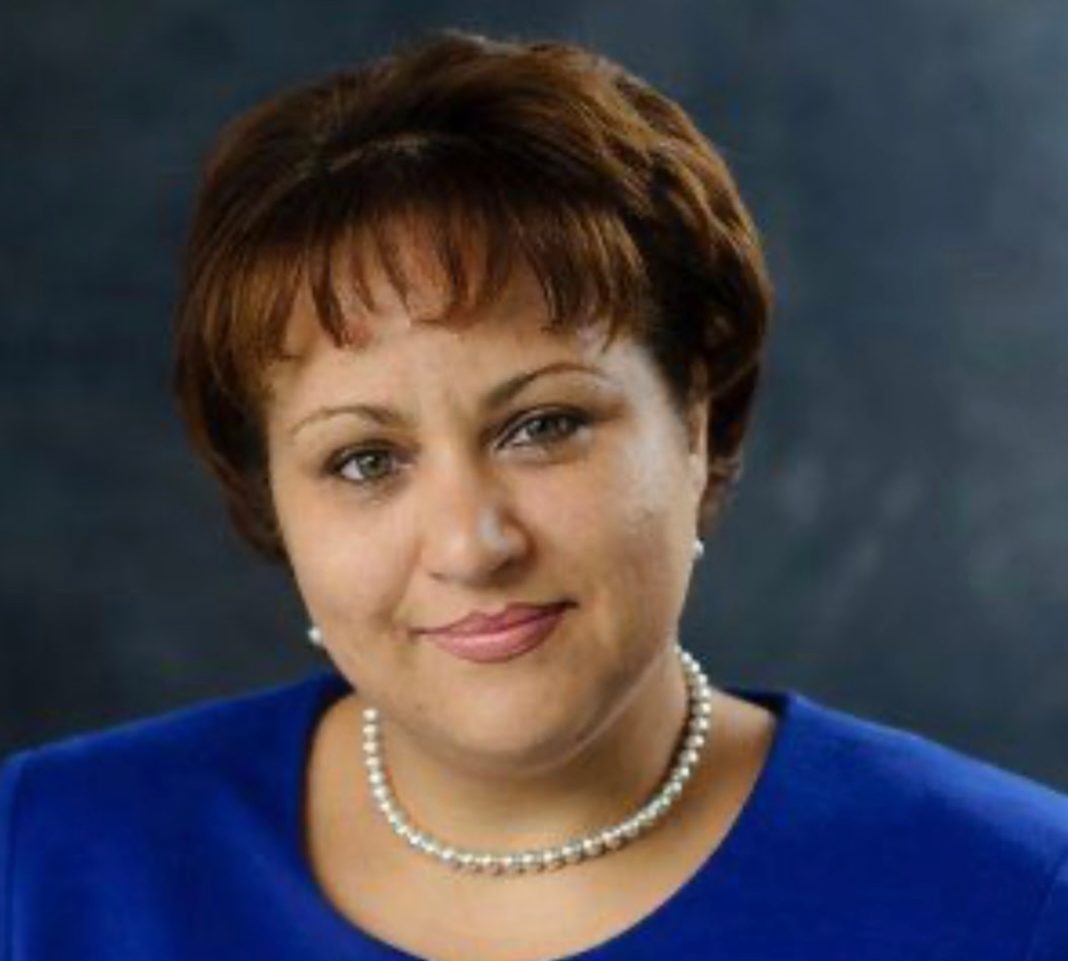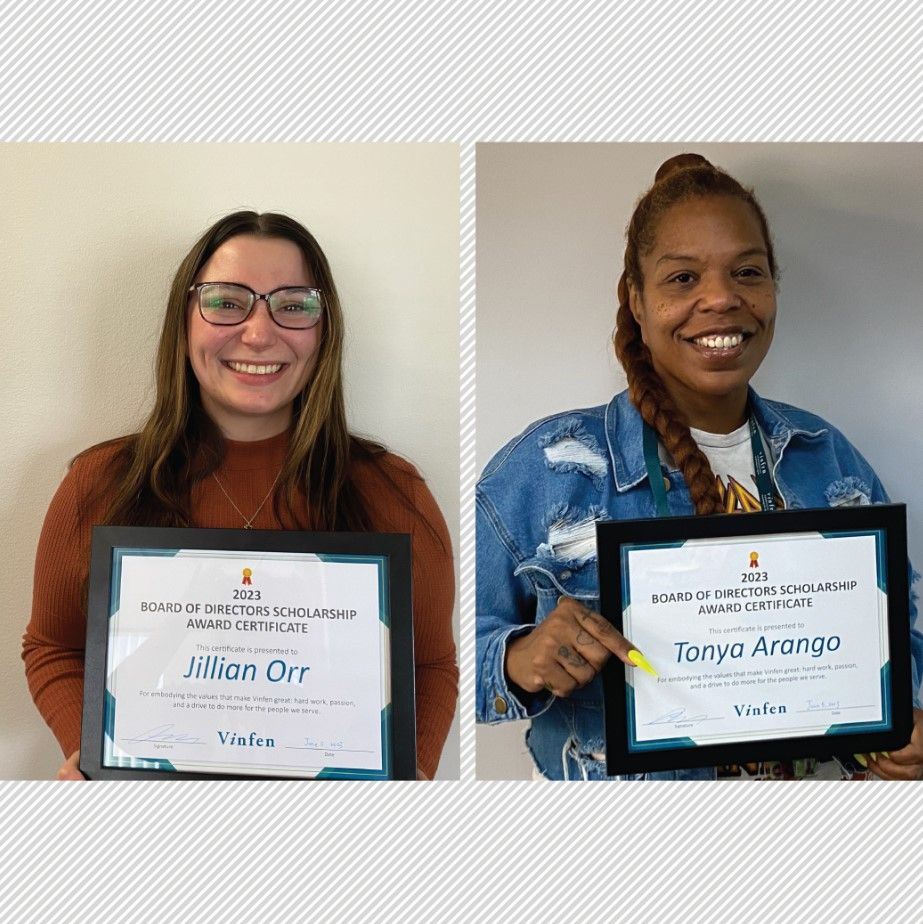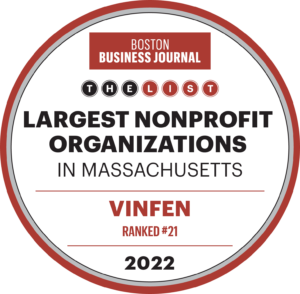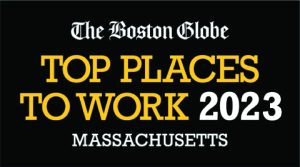8月 11, 2023
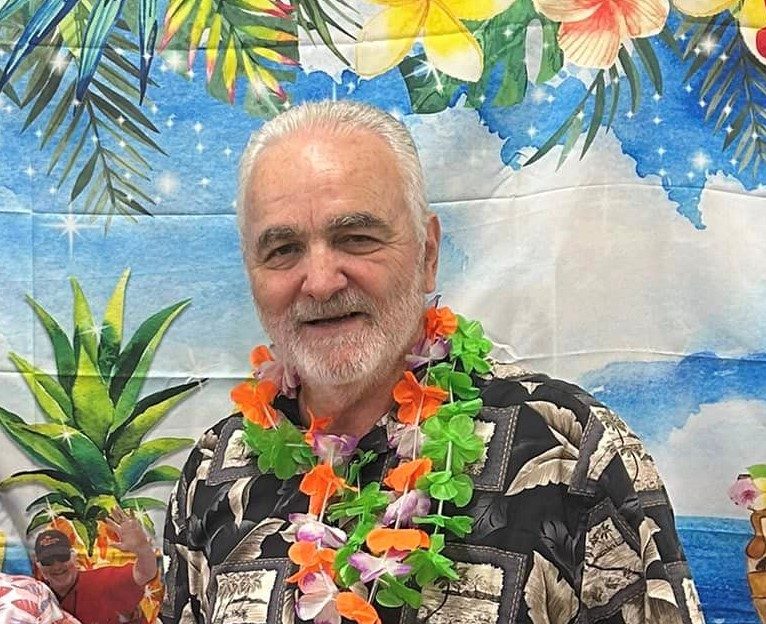
It’s not uncommon for families to pass down things of great significance from generation to generation—whether it be an ancestral home, a family business created out of hard work and sacrifice, or even just some sort of beloved memento whose value is mostly sentimental.
Tom Coppinger, arguably, got even greater gifts from his mother: a firsthand lesson in the importance of compassion, and a job that eventually turned into a lifelong vocation. For the last 43 years, Tom has helped individuals with mental health conditions find a supportive community at the Point After Clubhouse (PAC) in Lawrence—a program that was started in 1980 by his mother, the late Rose Coppinger. Throughout its history (the last 10 years coming as part of Vinfen), the PAC has offered members a range of employment, housing, and education services, along with access to social activities, life skills, wellness initiatives, arts-based rehabilitation, and advocacy opportunities.
“My mother founded Point After Clubhouse in 1980, during the early days of deinstitutionalization,” Tom says, referring to the period in which the Commonwealth of Massachusetts began the shutdown of state-run facilities for people with mental health conditions and developmental disabilities, in favor of individuals living more independently and receiving services within the community. “She had worked at Danvers State Hospital, and saw that, initially, people who’d been released were coming back to the hospital in the middle of the night. Because, as bad as it was, that was the home they knew—but mostly, because they had no place else to go.”
Rose Coppinger envisioned a community where people who needed a sense of belonging and support could be surrounded by peers. She built this community program based on the then-still fledgling clubhouse model, where staff and members worked side-by-side to determine how the needs of those who belonged to the club could best be met. She had the drive, she had close to 20 members ready to join—but she needed help to run the program. “I was living on the West Coast, and I told my mother if she got the clubhouse open, I’d give her a year,” Tom chuckles.
Instead, Tom never left PAC, eventually becoming its director in 1995. Now, at a time when many might consider a well-earned retirement, Tom is taking his extensive experience with this successful model to the next level, becoming the Executive Director of the Massachusetts Clubhouse Coalition (MCC), a non-profit organization dedicated to assisting clubhouses expand access to employment, housing, education, health care, and peer support.
“It’s a good fit for me,” Tom says. “A big part of the job is establishing and maintaining relationships with people at the 36 clubhouses in Massachusetts and the Department of Mental Health, and, you know, I pretty much know everyone already!”
The MCC also works to lobby for legislative support for clubhouses and the individuals that they serve. Tom says that one of the most immediate projects on that front is the continuing effort to improve reimbursement rates that determine how much clubhouses—and other human services programs—get paid to provide the services they offer. “I’m hitting the ground running, meeting with other advocacy organizations to work on improving rates, and by extension, helping to deal with the ongoing staffing crisis we’re all experiencing,” he says.
Heading up the MCC also involves running conferences—such as MCC’s annual Employment Celebration—and organizing advocacy events, and Tom is no stranger to that. “At Point After Club, we are somewhat renowned for our big events,” he laughs. “Every year, we will host conferences, gallery shows, concerts, our Friends & Family event… it’s a tremendously social community.”
It’s that community—that ever-evolving yet remarkably constant group of members and staff working together—that Tom says he will miss the most when he moves on. “The thing about Point After is that we are an intentional community—people who choose to be together and support each other. This is a place where everybody is rooting for one another—and where everybody is treated equally. Everybody is somebody at Point After.”
It was supposed to be a year, and it turned into a career—as well as a third-generation family business when Tom’s son spent time working at PAC. Even now, as Tom moves into the next phase of his work supporting clubhouses and the people who belong to them, he still credits his mother’s influence on his career path.
“I had never considered retirement, and I hadn’t really thought about leaving Point After,” Tom says. “When I was approached about the MCC opportunity, I initially balked at it, even though it seemed like I checked all the boxes for the role. Eventually though—and this is the truth—I woke up in the middle of the night one night, and it felt like my mother was telling me: ‘Thomas. Do it.’ So, that’s what I decided to do.”
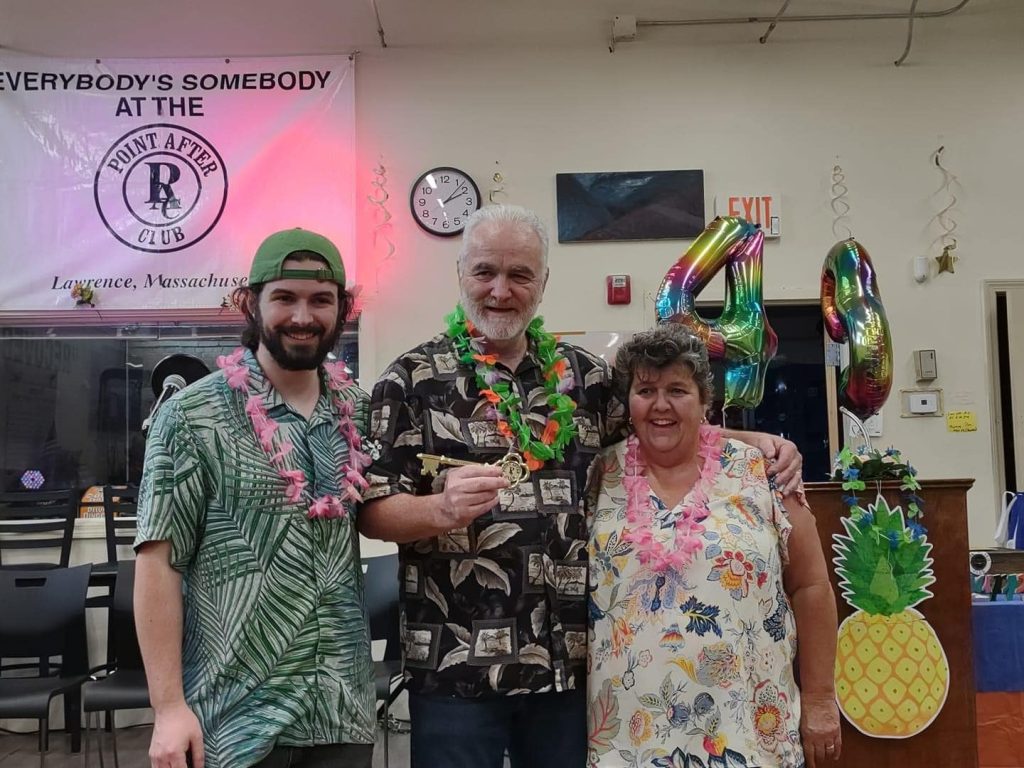
Point After Club Program Director Tom Coppinger with his son Sean and wife Linda at the PAC Open House celebration on Thursday, August 10, 2023

